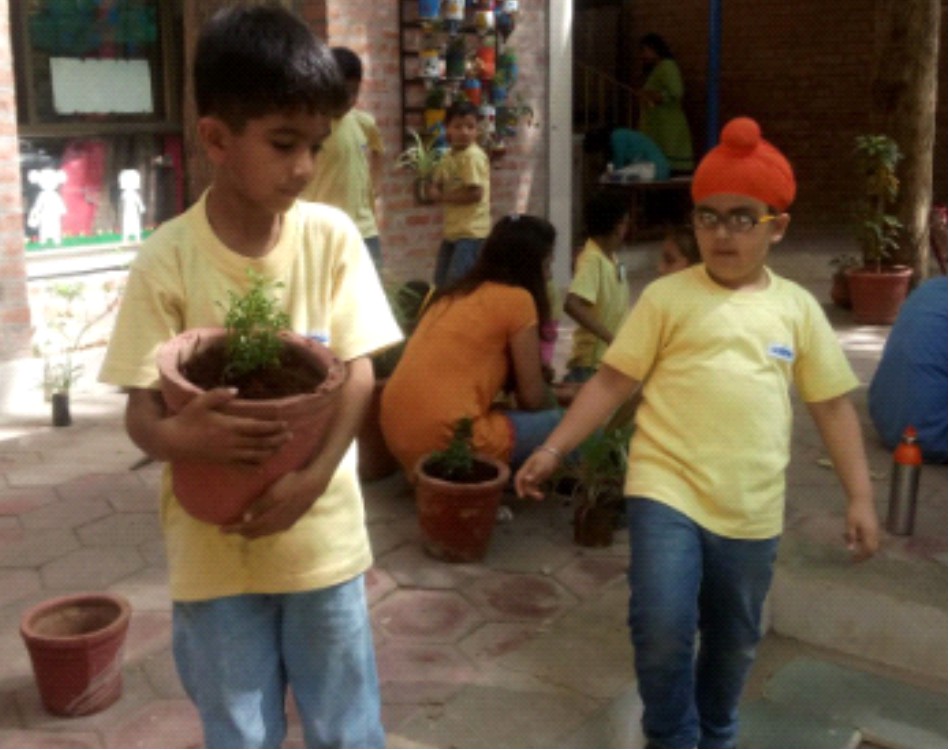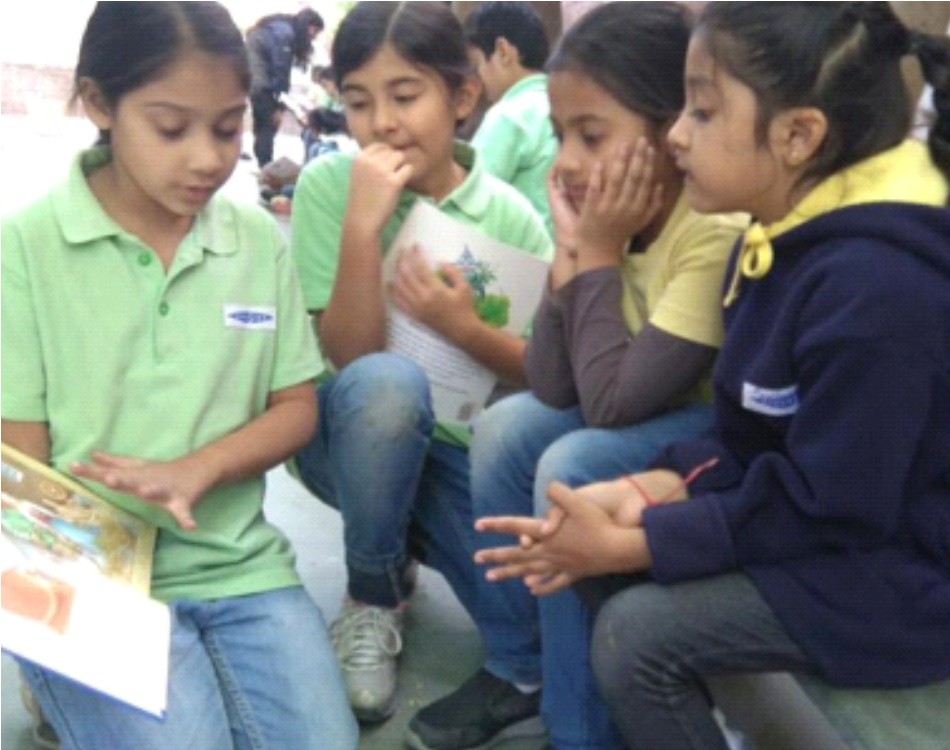Login
Our flagship offering conducted exclusively by Riverside Learning Center is to empower either existing schools or a start up to build a strong foundation with our I CAN Early Years – for this we embark on a 3 YEAR phased journey of co-creation where representative school leaders and teachers come together to build ground-up the I CAN SCHOOL model.
We use a systems approach to building school culture, along with a plan to timetable the EARLY YEARS curriculum and map a shared vision amongst ALL stakeholders.
The training includes a road map of how to TIMETABLE for the BOTH, AND programme, understanding how to implement and contextualise the processes, the curriculum along with training to use the HumanE framework to help design processes for your school.
2 Years | 15 Days per Year
5 Hours per Day
5 Grades Curriculum | 15 Processes
7 Skill Workshops
24 Coaching Calls
Minimum Cohort size : 10 participants
PROCESSES
-
Conglom
Conglom
Conglom' is a process The Riverside School - an intentional practice to timetable for 'relationships'. It's an opportunity for students and teachers of each class to come together first thing in the morning to start the day on a positive note. This is a time for learners to share feelings, opinions and ideas. The teacher and students facilitate the interaction so that each student feels respected and valued. The atmosphere that is created is one of trust and community. Starting with the 'heart' sets the stage to learn with the mind!
-
Agenda
Setting &
CTLAgenda Setting & CTL
Agenda Setting' is a powerful process that uses the pedagogy of co-creation to invite the voice of the child in the design of a school day – be it with the learning expectations or experiences that are suggested by students. When the agenda is made visible and co-created, it builds a sense of ownership and well-being. The process allows for collaboration as the teachers and students plan together; and students have a choice and voice in designing the day. 'Closing the Loop' occurs at the end of every session / day / month / year. It celebrates a sense of accomplishment of all that has been done, and reflection on how and what was learned- and how to refine the experiences for the future, if needed.
-
Provocation & Installation
Provocation & Installation
Curiosity is the first step of the learning process. It may be sparked by chance or constructed intentionally in a learning environment. Although children are naturally curious about many things, learning will only take place once their curiosity is deepened into interest. The 'Provocation' process for our early years, is one such intentionally designed ‘happenstance ’ that uses the spark of curiosity from children's dialogues to create the conditions for them to delve deeper. This takes the form of an 'installation' that offers children an opportunity to slow down, explore and learn about themselves as well as the area of their interest.
-
Zero Period
Zero Period
The 'Zero Period' is an intentional pause every month to review and reflect on the learning journey so far. It offers the teachers an opportunity to get feedback on the concepts, skills, and strategies used to teach the month before; and see if the intended outcome was achieved. It is also a time to find out if some concepts need to be retaught or not. It gives children an opportunity to look at the journey so far and see where they are confident or might need more help. Both learners and teachers are more aligned when setting goals, thereby becoming co-travellers and codesigners in this journey.
-
PROGRAM OF INQUIRY
PROGRAM OF INQUIRY
The 'Program of Inquiry', as the name suggests, is a process designed to help children delve deeper into an area of learning. The process has a clear methodology that offers simultaneously, structure and open explorations, that enables each child to uncover, make connections, work collaboratively and finally demonstrate understanding in multiple ways.
-
STUDENT-LED INTEREST CENTERS
STUDENT-LED INTEREST CENTERS
It is important to encourage children to explore and exercise all of their intelligences. Creating a rich, nurturing, and stimulating environment filled with interesting materials lays the foundation for empowered, curious children. With our 'Student Led Interest Centers' we build on this premise to help students identify strengths that they use to design and lead sessions that build their competencies as empowered learners.
-
Congenial Meets
Congenial Meets
A key determinant of creativity and growth in a school is the relationship shared between the members of the teaching community as well as the support team - for the strength and trust in the team has a direct impact on the decisions made for the children. The 'Congenial Process' at Riverside has been designed to intentionally foster a sense of community and collegiality amongst the team. Research has shown that colleagues who respect and trust each other are more likely to work from a space of ownership and accountability towards their work and this means they are more willing to innovate and create opportunities for their children.
-
Board Protocol
Board Protocol
The 'Board Protocol' is a powerful, yet simple process which guides the teacher to intentionally foster Relevance, Rigor and Relationships in every session that is designed. The classroom blackboard acts as a visible representation of teacher's learning goals for that teaching-session and offers shared expectations for learning with the learner. Not only does the board server as a 'conscience' for the planning, it also helps teachers build a sense of accountability and integrity in their practice.
-
Classroom Culture
Classroom Culture
At the core of any shift in mindset is the culture of empowerment that starts in a classroom. It is what happens daily and consistently that plants the seeds of the I CAN Mindset. Our 'Classroom Culture' process is designed to offer strategies and insights to intentionally build a culture of Relevance, Relationships and Rigor in classrooms through the tool of co creation.
-
Parent
OrientationParent Orientation
At the beginning of each year, the 'Parent Orientation' is an opportunity for all new and existing parents to align to the values and expectations of the school and meet the members of the community. It is a time where parents participate in a thoughtful, joyful and intentionally designed learning experience which helps them move from any anxiety that they might have to a feeling of anticipation for the years of schooling ahead for their children!
-
HOME VISIT
Home Visit
The process of 'Home Visits' is a time to meet and greet all new and exisitng parents at the start of each year and a time to forge a bond of comfort and trust between the home and school. The Home Visit offers teachers an opportunity to understand the context of each child and to use the insights from the meeting to enable the child at school.
-
STUDENT LED CONFERENCE
STUDENT LED CONFERENCE
As the name suggests, the 'Student Led Conference' in Key Stage 1 and 2, is a portfolio of work that a student compiles to make visible their personal journey of growth. It consists of work that shows evidence of what they might have enjoyed, been challenged with, can teach someone and are personally proud of. The children spend time each month to curate the work that will finally make it in the portfolio, and are supported in this process by their buddies and teachers. They then have a peer scrutiny and use the feedback to refine their final presentation, which is then shared with their parents. All of this is towards building confidence and self awareness in children on strategies that they have used for their personal growth.
-
Celebrate
the Child (CTC)Celebrate the Child (CTC)
Celebrate the Child' - as the name suggest ,is a process that is designed to celebrate a more wholistic story of a child. It is a meeting with parents and the child where anecdotes, stories, data and strategies are shared to make visible a more plural identity of the child - thus moving parents from being 'concerned' or 'worried' to feeling a sense of 'confidence' and 'comfort' that their child is noticed, respected and celebrated.
-
FUNDERSTANDING
Funderstanding
As the name suggests, 'FUNderstanding' is a powerful process that is designed to offer all children an opportunity to share with their parents and peers the 'how' of 'what' they have learned. It is a personal decision that a child makes on choosing the subject, process or skill that they are most confident about and also choosing the 'strategy' by which they will demonstrate this to the public. Reflection and feedback are the ingredients that make this process complete so that all children have the time to hone and refine their presentation for maximum impact.
SKILL WORKSHOPS
-
Surplus
Surplus
"'Surplus' is a simple mindful process through which children, teachers and all support team members add value to the ecosystem. There are multiple opportunities in each day ( the bus ride, the lunch time, the bathrooms, the time between sessions etc ) to leave the world a little bit more just, a little bit more beautiful and a little bit more kind - and the SURPLUS process is designed to help all stakeholders be more observant and more intentional."
-
Planning For Early Years
Planning For Early Years
Participants will be offered a simple template to help them intentionally plan to teach concepts to motivate, engage and reflect. Along with template, participants will also learn multiple strategies for content delivery and assessment which includes the voice of the learner.
-
Think Through
Think Through
To imagine a more just and equitable world is often thought of as a responsility of adults - but to bring our young children's notice and attention to the world and its inequities is a responsibility of education. The 'Think Through' is a simple and powerful process that allows children to experience and empathise, then imagine a world that 'can' be - by offering their solutions and strategies. Over time, this cultivates a mindset of I CAN - I am not helpless, Change is possible, and I CAN drive it.
-
Pre-Math
Pre-Math
"The 'Pre Math workshop' will introduce the participants to the foundational concepts that form the building blocks of a child's understanding of logical mathematical thinking. It will be through hands on and minds on activities that will allow the participant to feel confident and bring meaning and joy into the teaching."
-
Story Telling
Story Telling
Stories are all around us and they are a great way to engage, inspire and build imagination in children of any age group. It empowers the children with the creative freedom to express their thoughts and feelings without having to worry judgement or validation. Participants will learn how to use the various techniques of story telling - from simple vocal exercises to dramatic play to props and play to enhance their story telling skills.
-
Phonics
Phonics
"Phonics is the foundation on which language and comprehension is built on - it offers children the logic of how letters 'sound' and once children understand the association, they are able to build words, which then become sentences...all of these leading to comprehension and meaning. Participants will go through the road map of how to build phonemic awareness using games, letter formation and word play."
-
HUMANE FRAMEWORK
HUMANE FRAMEWORK
(Feel, Imagine, Do, Share) to show how we create processes that bring values to life.
The participants will learn to use the framework to:
1) Built a culture of iteration
2) Use co-creation as a tool with all stakeholders (students, parents, staff, and community) The workshop will use case studies from Riverside to highlight the FIDS method.
The workshop will demonstrate, that if you are anchored by strong values, build for the learner first and follow a design thinking framework, you can shape HumanE citizens with an I CAN Mindset, who are rooted in empathy, ethics, excellence, and collaboration.
-
School Tour
School Tour
The school space doubles as a home away from home for all children - and to have a sense of community and ownership with the space and their peers, adults and the programme of learning will make the journey that much more enjoyable. The 'School Tour' process is one such opportunity that helps all learners build that sense of 'family ' through the understanding of the ‘why ', the 'what' and the 'how' of the way the school system functions.
* Training conducted by only RLC trainers.
Send your request for proposal to
[email protected]




